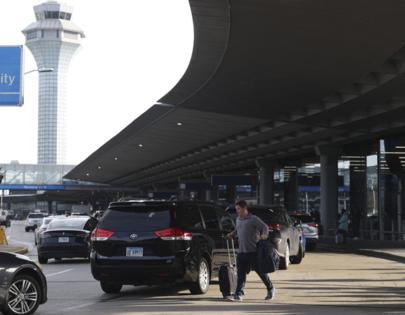Chicago could force Uber and Lyft to hike driver pay
Published in Business News
Rideshare companies like Lyft and Uber could soon be forced to pay Chicago drivers more if an ordinance up for debate Thursday moves ahead, a change the companies say would cause the cost of rides to skyrocket for passengers.
Ald. Michael Rodriguez, 22nd, said his measure would make sure rideshare drivers make more than minimum wage and get paid when they wait for and drive to riders. But critics and the companies say the legislation will raise costs and could even put many drivers out of work.
“While prices have increased for years, pay for drivers has decreased,” Rodriguez said. “Almost half the time, they are working, but not getting paid.”
Rodriguez’s ordinance would raise driver pay during rides to $1.50 per mile and 62.5 cents per minute in July 2026. It would also establish a $7 minimum driver payout for each trip.
The City Council’s Workforce Development Committee, chaired by Rodriguez, is set to discuss and vote on the measure Thursday. If it passes, it could face a final vote from all aldermen next week.
That timeline is far too tight, Ald. Matt O’Shea, 19th, argued Monday afternoon. The Beverly alderman is concerned the ordinance could “put a gaping hole” in the city’s budget by making cost-averse Chicagoans less likely to take rides that generate tax revenue.
“We don’t know what this is, but we do know in just a matter of months we are going to have the most difficult budget vote in the history of the modern era,” O’Shea said. “Can we afford to take another hit?”
O’Shea said “everybody” believes rideshare drivers need to be paid better, but added that he fears the ordinance will make it more expensive for working class Chicagoans to take rides. It is unclear what effect the ordinance will have because the committee and the administration of Mayor Brandon Johnson, who has appeared to remain neutral throughout the debate so far, have not shared analysis, he said.
In addition to pay raises, Rodriguez’s ordinance would require fare breakdowns be shared with both riders and drivers. It would also add driver safety measures — like requiring passenger identities to be verified — and would reconfigure the driver disciplinary process by giving drivers a seven-day notice ahead of suspensions and details explaining why they have been deactivated.
Both Uber and Lyft blasted the potential forced pay hike Monday. Lyft spokesperson CJ Macklin likened the ordinance to laws in New York City that have “forced thousands of drivers out of the app for hours at a time.”
“This misguided policy could nearly double ride fares, pricing out communities that depend on us while reducing driver earnings as demand plummets,” Macklin said. “We support fair driver compensation, but this disastrous proposal will leave riders, drivers and Chicago worse off.”
A 500-person poll commissioned and shared by Uber and conducted by pollster Impact Research determined 62% of likely Chicago voters consider rideshare “an everyday necessity” and 63% oppose the pay-hike proposal.
“The proposed legislation, as currently drafted, would dramatically raise ride costs for Chicagoans by nearly 40%, slash city tax revenues by tens of millions of dollars, and force workforce reductions impacting up to 10,000 drivers,” Uber spokesperson Josh Gold said. “This approach risks undermining both affordability for riders and economic opportunity for thousands of working families.”
Rodriguez’s proposal faces considerable changes if lobbyists for the rideshare companies convince enough of his colleagues to vote against it. The companies are likely to place pressure on the City Council and on Johnson, who has so far avoided publicly taking sides.
And the companies have pressured local politicians before. Uber used its presence on huge numbers of Chicago phones to share messages urging riders last month to act as the Illinois General Assembly weighed new rideshare taxes to fix a massive transit funding shortfall, and Lyft has shared similar political messages in the past.
The ordinance comes amid a long-running feud by competing powerhouse unions to organize rideshare drivers. The Service Employees International Union Local 1 and Mechanics’ Local 701 have backed the ordinance with their “Chicago Gig Alliance” coalition.
These unregulated rideshare corporations are reaping millions of dollars in profits off the backs of Chicago workers,” Ronnie Gonzalez, special representative to the machinists union’s Midwest chapter, said at a City Hall news conference last month sparked by Block Club Chicago’s reporting that Uber had overcharged local riders. “It’s time to hold these companies accountable and ensure that wealth created in Chicago stays in Chicago.”
But the International Union of Operating Engineers Local 150 opposes the measure. The union, which has already signed a labor peace agreement with Uber to ease its driver-organizing efforts, believes it it is not “the right timing” to move ahead on the pay raises, according to Marc Poulos, executive director of Local 150’s labor-management group.
Poulos said the New York-inspired legislation is “fitting a square peg in a round hole.” While many drivers there are full-time professionals, many Chicago drivers work more flexibly for Uber and Lyft, he said. The ordinance could compel the companies to end that flexibility by making less dedicated drivers too expensive to employ, he said.
He also believes the ordinance does not do enough for drivers regarding workplace injury and de-activation.
“There’s just a number of things why we would love to see this ordinance be delayed,” Poulos said.
But Rodriguez said he does not buy the claim that higher pay for drivers will lead to higher costs for riders. Prices have already risen, he said, and if they rise again, it “would be a decision of the companies.”
“Industry will always say that the sky is falling when you’re raising rates, but the fact is that we know increasing worker pay makes our economy better,” he said.
©2025 Chicago Tribune. Visit at chicagotribune.com. Distributed by Tribune Content Agency, LLC.












Comments